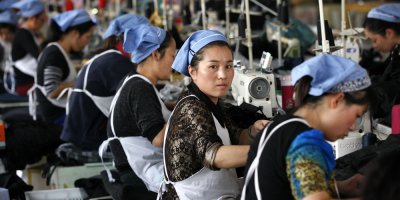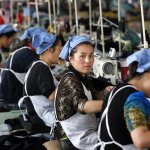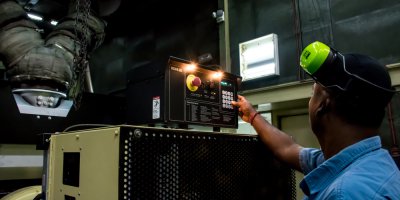
What this means to say is Asia, with lesser developed nations at its center, will need to rethink what it means to be creative. Source: Shutterstock
Can creativity help replace jobs lost as a result of automation and AI?
A RECENT MIT Technology Review report said that artificial intelligence (AI) will eliminate one in every eight jobs in Asia by 2024.
Non-creative, routine, and analytical jobs will be among the first to bite the dust as automation becomes the norm.
This means that creativity will be one of the most sought-after skills in the coming years.
In fact, a 2019 LinkedIn analysis shows that creativity is already a runner-up among most important skill right now.
Despite cloud computing topping the skills list, not only is it a skill that’s harder to obtain but also one that might be obsolete soon.
So, amid cuts on process-oriented jobs, employers need to reconsider how to push forward with a renewed focus on creativity.
After all, creativity is one area that humans have the absolute upper hand on.
As automation sweeps the workforce, employers will be able to repurpose the man hours on tasks that are more productive.
In an interview, American businessman Mark Cuban questioned how ‘safe’ jobs may not even exist in years to come.
“Being able to think creatively will be key to survival,” Cuban said.
How will creativity help amid cuts
The MIT Technology Review report forecasts AI impact to be greater in Asia’s wealthier economies instead of the poorer nations (14 percent vs. 10 percent overall).
Despite that, wealthier economies will have a greater capacity to upskill and reskill the workforce.
Hence, preparing for the shift in the workforce is critical for all economies across the globe.
At the end of 2018, Nikkei Asian Review reported that “Singapore will face the highest rate of job displacement resulting from technological disruption in Southeast Asia.”
However, Singapore’s 2019 Budget invests heavily on the development of digital skills as well as reskilling the workforce.
On the other hand, the void that automation creates in the poorer nations will run deeper.
This is because repetitive manual labor can be easily replicated by machines.
What this means is Asia, with lesser developed nations at its center, will need to rethink what it means to be creative.
In the grander scheme of things, AI is truly here to challenge and repurpose the workforce to become more creative.
Instead of spending man hours on mundane tasks, we can now focus on being creative and really innovating instead of just solving problems in a routine manner.
READ MORE
- Safer Automation: How Sophic and Firmus Succeeded in Malaysia with MDEC’s Support
- Privilege granted, not gained: Intelligent authorization for enhanced infrastructure productivity
- Low-Code produces the Proof-of-Possibilities
- New Wearables Enable Staff to Work Faster and Safer
- Experts weigh in on Oracle’s departure from adland




